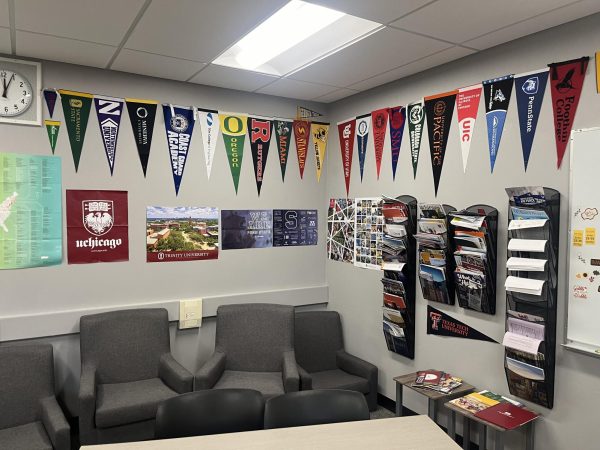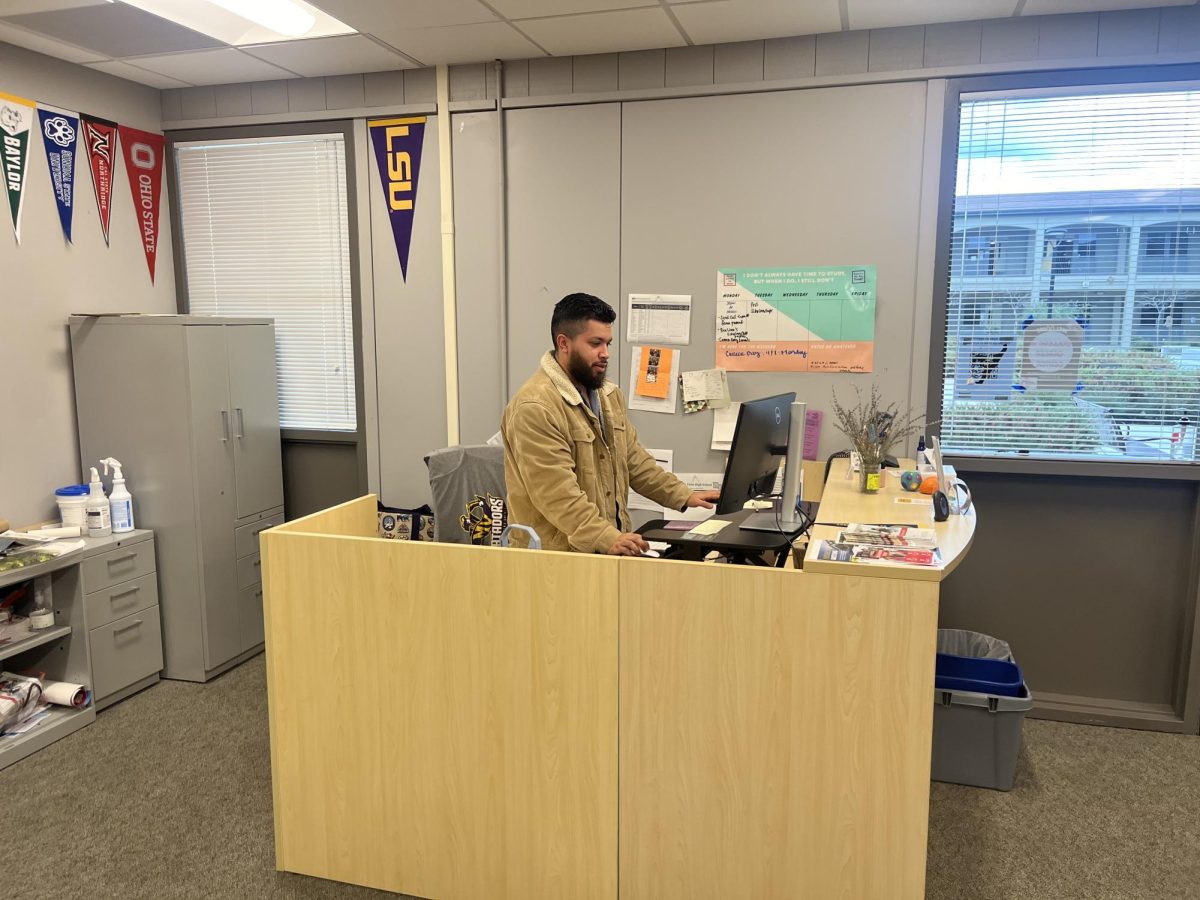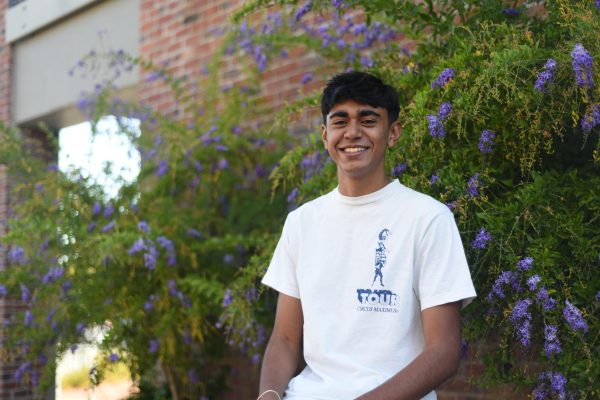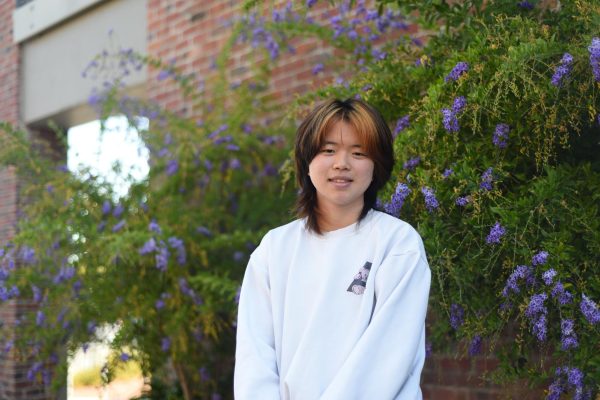Sophomore Shreeya Setty has had wide exposure to various activities in the liberal arts fields such as being a teacher’s assistant for a business class and a member of Future Business Leaders of America (FBLA), as well as joining dance teams like Monta Vista Dance Team and Gurus of Dance. These experiences created an internal conflict for Setty regarding what life and career path she wanted to pursue as she went through high school.
College and Career Advisor Rogelio Calderon observes that it’s very common for students to struggle choosing a major. Most of the time, students are unsure what major to pursue or are indecisive between multiple. Calderon explains that there are a lot of factors that influence this decision, such as external pressures from parents, or simply how passionate people are about a specific topic.
Setty describes that over time, she felt more of an interest in business through the various activities she did. However, her parents have a huge influence over her life path. Sometimes what she wanted to do conflicted with her parents’ ideals about her prospective major and career.
“Growing up, my parents were very adamant about me going into law, and it was something that I did consider for a while to make them happy,” Setty said. “But I found more of my interest in business, especially since I did many activities involving it like Principles of Business and FBLA. It was kind of hard for my parents to let go of the idea of me not doing law, but eventually, they changed their minds.”
However, even when someone has a specific interest, they may struggle to select a major due to the wide variety of courses that colleges offer. For sophomore Carolyne Chiang, although she knows she’ll be in the STEM field, she still struggles to choose a specific major.
“There are just so many majors that I don’t know how to start narrowing them down,” Chiang said. “My main fear is I’ll never figure out what I really want to do. It makes me afraid that by senior year, when I’m applying for colleges, I won’t know which schools to apply to because I haven’t decided on my major. Then, the classes that I’ve taken in the past might be irrelevant and that would put me at a disadvantage.”
Calderon emphasizes that when it comes to picking a major, every student has different priorities. Senior Amy Zheng says that when it came time for her to pick her major, she prioritized creativity and innovation and picked majors that aligned with research and development. Zheng chose specifically to pursue research and development in the field of disaster response such as dealing with hurricanes and tornadoes. She chose to apply for restrictive early action and got admitted to the school of her choice, where she doesn’t have to declare her major till her sophomore year of college. Some students such as Zheng care more about how much satisfaction a career in that major would give them, whereas others such as Chiang might prioritize a sustainable career through income or personal interest.
“My job is just to give students enough tools and information so that they can feel a little bit more confident in choosing a path,” Calderon said. “I always tell students, it’s a path that you’re going to try and you may end up changing it and that’s okay. It’s important to pursue something that you want to do.”

Chiang values a sustainable career, and she feels a lot of pressure to find a well-paying job from her parents and counselors. Chiang believes the STEM field allows for a stable career. To her, a major determines someone’s future and life, therefore, she wants to determine her major as soon as possible. She comments how she is afraid that choosing the wrong major could lead to difficulty finding jobs.
Zheng also felt pressure to go into STEM as an underclassman but chose to explore other subjects, including music. Music, specifically playing the violin, played a huge role in her life as she would spend many hours weekly practicing as well as being part of a youth orchestra. She noticed that many of her friends who were also passionate about music would either choose to double major or move away from pursuing music in college entirely. This was due to a commonly held belief in the culture of the Bay Area that a career in the arts wasn’t viable. Zheng spent the majority of high school unsure about her future. It wasn’t until she explored different activities and joined competitions that she realized she wanted to work in research and development for disaster response.
“There’s a huge culture that you have to do STEM or you’re not going to be successful,” Zheng said. “But that’s definitely not true. There are a lot of people who go on to not do STEM things and it’s way more fulfilling. So it’s about finding something that you actually like doing.”
Chiang’s fears and uncertainty extend to college admissions as she feels that what college you get into heavily impacts your future. She would often feel average, noticing that her extracurriculars would be lacking in comparison to her peers, especially considering the high expectations from admissions officers in top universities.
Calderon disagrees with this line of thinking and notes that many high school students have a similar mentality. He emphasizes that college and choosing a major aren’t as influential as students perceive.
“People forget that your major does not have to equal your career,” Calderon said. “You can pursue something in a particular field and have a career that’s completely different from that. And it’s not a waste of time, because you can still take a lot of those skills that you gained in that field and apply that to your career.”

Setty echoes Chiang’s sentiment, as she feels her extracurricular activities are not focused enough for the major she currently wants to pursue. While she thinks she demonstrates leadership in the various activities she takes part in, she fears that colleges might not see enough commitment from her.
“Even though I do things related to business, I still do a lot of other things which might not necessarily have to do with it,” Setty said. “I’m on the dance team, I teach at another dance studio. Overall dance is a big part of my life but I feel like it has a huge disconnect from my planned major so that might be a problem.”
Calderon destigmatizes this idea by saying that most colleges don’t expect you to be in a NASA-level internship or find ground-breaking research in your area to get into college. Furthermore, he acknowledges that many students might change their prospective major shortly before the college application process due to losing interest in an area or gaining interest in another area through taking classes and being exposed to new fields. Zheng agrees with this idea and is even open to changing majors while attending college.
“Don’t put yourself into a box and say, ‘I have to do this,’” Zheng said. “I feel like you should be very flexible and open to change. That’s how you’re going to be able to find something that you actually enjoy doing and want to do for the rest of your life. That’s something that I want to keep with me going into college as well. I want to be more open to change.”
Calderon adds colleges understand that many people might not have the same opportunities as others, and instead, they look for a more well-rounded character who displays passion and interest in learning overall. Calderon advises uncertain students to explore a wide variety of fields by going to classes, joining clubs and attending summer programs. These experiences allow students to narrow down their options and find their interests.
“It’s important to pay attention to our own individual passions, individual interests and pathways and journeys and allow that to take control and take over rather than what others are doing,” Calderon said. “It’s okay to not know and it’s okay to be unsure of what you want to pursue because eventually it will all come together right.”












